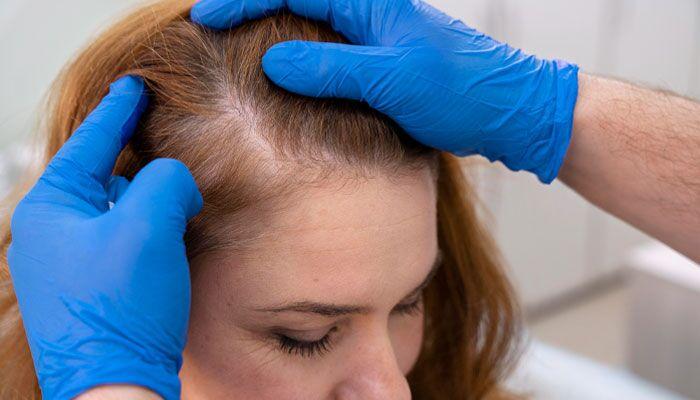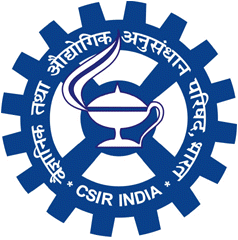Treatments Focus
Hair Loss in Women

Losing a few hair strands every day is an inevitable part of hair growth cycle that is fairly common. But what if this cycle is disrupted?
Alopecia or hair loss is a common problem in India today, affecting people of all ages and genders. While the condition is generally common and better accepted in men, women tend to experience psychological distress and lowered self-esteem as a result. The truth is, nearly 40 percent of women will have faced some degree of hair loss by the age of 50 and more than 50 percent after menopause. Yet, the patterns and causes of hair loss in women differ significantly from men.
Based on the cause, female hair loss is of various types. Among them, female pattern hair loss (FPHL) or androgenic alopecia is the most common that occurs in women with genetic predisposition. Others include − telogen effluvium, alopecia areata, and traction alopecia.
Signs and Symptoms of Hair loss
Whether temporary or permanent, hair loss can occur in various ways, depending on what caused it in the first place. Here are some signs you might want to pay attention to:
Visible receding hairline at the crown
Appearance of circular or patchy bald spots
Hair thinning (when clumps of hair fall out)
Less fullness of ponytail
Scalp irritation and scarring
Scaly skin
You may also experience full-body hair loss in addition to your scalp if your hair follicles are destroyed by certain health conditions like cancer or autoimmune disorders such as alopecia areata.
Causes of Hair loss
It is not known entirely what actually triggers hair loss in women, but it appears that a combination of the following factors increases one’s risk:
- Heredity (family history)
- Physical and emotional stress
- Nutritional deficiencies
- Hormonal imbalance (as in PCOS, thyroid diseases, pregnancy, menopause, etc.)
- Improper lifestyle habits (smoking and alcohol abuse)
- Underlying health conditions (such as diabetes, autoimmune disorders or an infection)
- Cancer treatment (Radiation and chemotherapy)
- Aging
- Overuse of damaging hair products and hairstyles
- Side effects of medications (e.g., oral contraceptives, blood thinners, and antidepressants)
Diagnosis and Treatment
Compared to men, diagnosing hair loss in women is quite challenging because many conditions and circumstances lead to this disorder. And therefore, to make an accurate diagnosis, your doctor would gather information about your medical and family history and perform a thorough physical examination of your scalp to determine the degree and pattern of hair loss. You may also undergo a tug or pull test at this point.
In certain cases, selected laboratory tests and occasional punch biopsy may be advised if a diagnosis remains unclear from the history and physical examination.
Several treatment options are available depending on the cause of your hair loss. These include topical medications, laser light therapy, corticosteroid injections, platelet-rich plasma therapy, melatonin, and in some cases where therapies fail, hair transplantation. But again, you may have to follow one or more of these treatments for months or years to see noticeable hair growth in your balding areas.
Talk with your doctor today to see which treatment is best for you in order to reduce or, at the very least, eliminate your nightmare of hair loss.
FAQ's :
References:
- Hair Loss in Women: Causes, Treatment & Prevention. (n.d.). Cleveland Clinic. Retrieved May 10, 2022, from https://my.clevelandclinic.org/health/diseases/16921-hair-loss-in-women
- Redler, S., Messenger, A. G., & Betz, R. C. (2017). Genetics and other factors in the aetiology of female pattern hair loss. Experimental Dermatology, 26(6), 510–517. https://doi.org/10.1111/exd.13373
- Everything You Need to Know About Hair Loss. (2022, January 27). Healthline. https://www.healthline.com/health/hair-loss
- Hair loss: Signs and symptoms. Retrieved May 9, 2022, from https://www.aad.org/public/diseases/hair-loss/insider/begin
- Hair loss – Diagnosis and treatment. Mayoclinic. https://www.mayoclinic.org/diseases-conditions/hair-loss/diagnosis-treatment/drc-20372932
- Thiedke, C. C. (2003). Alopecia in Women. American Family Physician, 67(5), 1007–1014. https://www.aafp.org/afp/2003/0301/p1007.html#:~:text=Androgenetic%20alopecia%20is%20the%20most,and%20a%20focused%20physical%20examination.
- Hair loss: How does it affect women? (2015, April 16). https://www.medicalnewstoday.com/articles/292492
- Baldness Gene: How Genetics Influence Hair Loss. (2020, November 24). Healthline. https://www.healthline.com/health/baldness-gene
- Genetic Tests For Hair Loss in Women—Alba Reyes Sagiv. (n.d.). Alba Reyes Skin and Hair Transplant Institute. Retrieved May 10, 2022, from https://www.albareyes.com/genetic-tests/genetic-tests-for-hair-loss-in-women/
Related Articles
Book an Appointment to understand how GenepoweRx can help you in treating
Hair Loss in Women
Meet The Doctors
Dr Kalyan Uppaluri
Dr Hima Challa
Your genetics … Your Test ... Your Health Success
It’s always the word of mouth that’s the best advice. Here are some of our…


Our Partners






Professional Partnerships
Government Association

